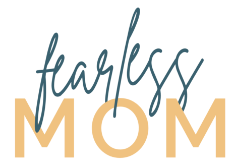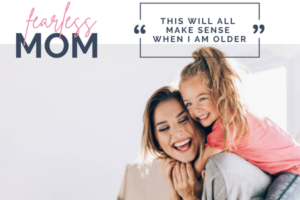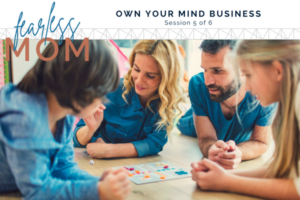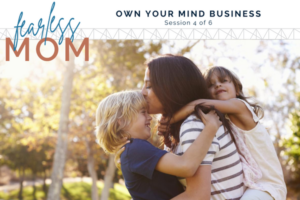I had a happy, normal childhood in Katy, Texas. I played outside with the kids in my neighborhood, tried every sport or extracurricular activity, and daydreamed about being an adult. We were very involved in the local church, and if the doors were open, we were there. It was a busy and wonderful life.
I met the love of my life, Kyle, my sophomore year of high school. He stole my heart, and I knew by my senior year that I was going to marry him. He was kind, smart, supportive, competitive, passionate, good down to his very core, and oh so handsome. Our relationship even survived the “long-distance” phase when we went to separate colleges.
We got married in 2009. Life was blissful, newlywed paradise. We traveled and went on fun dates. We played co-ed flag football, sand volleyball, and co-ed softball. Together, we made big plans.
Little did I know – I had been harboring a sleeping giant my whole life.
When I was 25, I began noticing some unsettling changes in my body. I was losing my balance and feeling fatigued so easily. Something was off, and I decided to seek answers.
After a comparatively short diagnosis journey of ruling out inner ear problems, vitamin deficiencies, blood disorders, tumors, multiple sclerosis and other disorders, my doctor ran a genetic panel.
August 19, 2013, my world was rocked. I was handed a progressive, debilitating and life-shortening diagnosis of Friedreich’s Ataxia (FA). I wasn’t offered any hope because there currently aren’t any treatments or a cure for FA.
Without getting too deep into the science behind it, FA is a genetic disease where my cells don’t regenerate and function like they should. This build-up of damaged cells causes poor communication in my central nervous system. This results in a wide array of symptoms, including decreased coordination and dexterity, poor balance, slurred speech and fatigue.
I was suddenly destined to lead a sickly life dependent on a walker and then a wheelchair. This would progress into complete physical disability and eventual heart failure. I felt like this had to be a nightmare. This had to be a cruel joke or a scene out of someone else’s life. In that little exam room in Austin, Texas, time froze and so did I.
Kyle put his arm around my shoulders and said, “It’s ok, we can fight this.” I snapped back, “N o, we can’t. This isn’t cancer; there’s no treatment or cure. It’s just going to take away all of my abilities until it kills me. I can’t fight that.”
We did a little preliminary research the first week after diagnosis and it all seemed so grim. The only thoughts I had those first few days were:
- I’m going to live out my days in a wheelchair, and then FA will kill me.
- I guess Kyle and I aren’t going to have babies now, because I can’t leave him a widower with a houseful of diseased kids like me.
- Why me?
My friends and family allowed me to mourn as we absorbed our new reality while they fiercely gathered as much information as possible. They asked questions and held my hands as we found out the answers. My village held me together while my mind tore me apart and my heart shattered.
I knew that my life was no longer on the path I planned. I gave up on my future. I mourned for the children I wouldn’t be able to give to my wonderful husband, the adventures I wouldn’t experience, and most heartbreakingly, the loved ones I would leave behind once this horrible disease was done with me.
I was so scared. Instead of laying my burden at God’s feet and letting Him guide me, I completely shut God out. I didn’t know what to say to Him.
I felt so betrayed. I had such grand plans for my life that I thought were ordained by Him based on the path that He had led me down thus far. Then those plans were ripped away from me by a disease I had been given before I was even born. That wasn’t fair. That wasn’t my God. He wouldn’t do that to me.
I wanted to stay mad at God because, at the time, that’s all that made sense to me.
As we digested the diagnosis, we accepted that life would never be the same. It would always be complicated by FA. But that certainly didn’t mean that life was over. Not yet, and not by a long shot.
We met with a leading expert in the field of FA with our 16-page document of questions, but they all boiled down to: what is FA going to do to me, and should we still have children? His answer was quite simple: If you have always wanted kids, have kids; don’t let FA stop you.
For the first time since receiving my diagnosis, I earnestly prayed. “Ok God, you gave me FA. What now? Obviously, You have a path for my life that I had no part of planning. Give me a clear sign that we are or aren’t meant to have kids.”
The next week, we got Kyle’s test results back that he was not a carrier of the FA gene, meaning that without a doubt, our kids would not have FA. We took that as our sign to go for it and got pregnant that month.
For me, it took a BIG thing like pregnancy to come back to God. When I heard my son’s heartbeat during that first ultrasound, my faith was restored. The realization that the same God who gave me this broken body was capable of using that very same body to grow a perfect human life saved me. We welcomed our perfectly healthy “strong willed blessing” son, Brooks, in 2014. God completed our family with our perfectly healthy, passionate genius daughter, Collins, in 2017.

When people admire my strength or encourage me with the old Christian sentiment of “God won’t give you more than you can handle.” I think, “well, yes, He absolutely did give me more than I could handle.”
I absolutely can’t handle FA on my own. I absolutely can’t handle motherhood on my own. I absolutely can’t handle marriage on my own. But that is God’s perfect design! We aren’t meant to do any of it on our own, because we aren’t on our own. God is always with us – rooting for us and equipping us. They say it takes a village to raise a baby and that is so true. If you strive to keep God at the center of your village – there truly isn’t ANYTHING you can’t handle.
I lived in darkness with fear as my companion following my diagnosis. That choice just made everything worse. I am still fearful about my future, but I make the daily choice to trust God to guide me through that fear and help me act fearless. Life works better in the light. Life works better when you relinquish your plans for His.
There are days when mothering a kindergartner and a toddler is just too much for my broken earthly body. When I think about what my disease has in store for my future or when my symptoms progress me further into disability, I slide back into darkness. Our faithful and loving God always sustains me and leads me back to the light. He is teaching me grit and grace so that I can share a message of hope despite disability. As Julie Richard says, “I didn’t choose this but God will use this.”
“May the God of hope fill you with all joy and peace as you trust in Him, so that you may overflow with hope by the power of the Holy Spirit.” Romans 15:13
